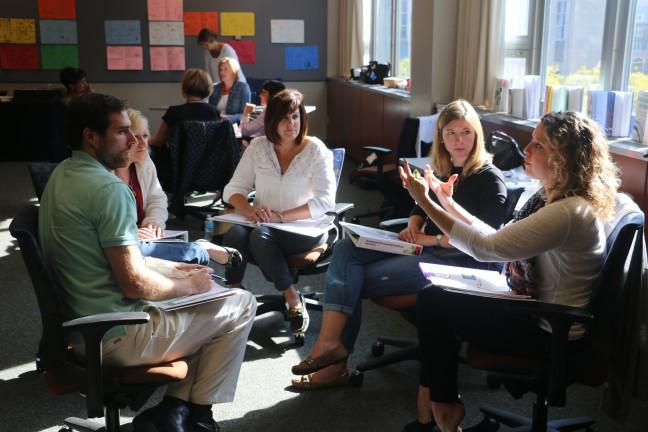Life coaching certificates offer University of Wisconsin alumni and graduate students a chance to help others achieve success and discover their passions.
Over the years, life coaching has become an increasingly popular trend for not just businesses and organizations, but for nonprofits and other professionals seeking to better their job performance and communication skills.
Until a few years ago, only for-profit organizations offered the opportunity to become a life coach in the Midwest. Then UW “jumped in” and created a program that would allow graduate students to earn a certificate in an academic based program, Darcy Luoma, lead instructor of the Professional Life Coaching Certificate program said.
Considering becoming a life coach? The UW-Madison PLCC is the only accredited program in the midwest! To learn more: http://t.co/xtxjLpftxt
— Darcy Luoma (@DarcyLuoma) April 20, 2015
The Professional Life Coaching Certificate program, or PLCC, extends the chance for people of all ages with a bachelor’s degree to continue their studies in something that is not only beneficial and rewarding for themselves, but to others as well, Luoma said.
“A life coach is someone who really helps clients identify what they want in life and what will make them happy or more successful,” Luoma said “By helping them build an action plan, you can help them determine what will allow them to be happier or more successful in fulfilling their purpose in life.”
.@DarcyLuoma tells @Forbes that #lifecoaches "motivate people to take action": http://t.co/gGIimiEo4P pic.twitter.com/JRpnoJMaYy
— Continuing Studies (@UWContinStudies) July 22, 2015
Typically, life coaching has been general used in the business world, Luoma said. Businesses have seen the real benefit of hiring a coach for their employees as they learn to develop stronger communication skills and better deal with conflicts.
By investing in their employees, businesses benefit by their employee’s higher efficiency and new strategic mind sets, Luoma said.
But life coaching isn’t limited to businesses, and people in a variety of fields trying to become more effective leaders, managers and employees come to the program as well, Aphra Mednick, program manager for PLCC, said.
Mednick said life coaching transcends industry roles.
“Whether you are someone working with a large fortune 500 company, working with someone who is launching their own career or people just working in a variety of fields, these skills are helpful just in how people communicate with clients and employees,” Mednick said.
Additionally, Mednick said PLCC offers graduates the chance to earn a certificate through a program that is aligned with the International Coaching Federation, or ICF. ICF recognizes PLCC as a credible coaching program, an important aspect as many businesses only hire ICF qualified people.
Though PLCC is currently offered as a non academic course, it allows graduates to access the university without having to take for-credit classes, Mednick said.
Yet with about 140 hours of instruction time, graduates will be too busy with a rigorous course load to perhaps consider taking additional classes, Mednick said.
Luoma said despite the workload to earn a certificate, being a life coach is a really rewarding experience.
“As a certificate part of continuing of studies, we are very much about outreach to the community and to the state,” Medick said. “We are very much about bringing special developmental opportunities to people who live here and people who live across our borders as well.”
A previous version of this article described the PLCC classes as four credits. It has been updated to clarify the classes are for-credit. The Badger Herald regrets this mistake.













